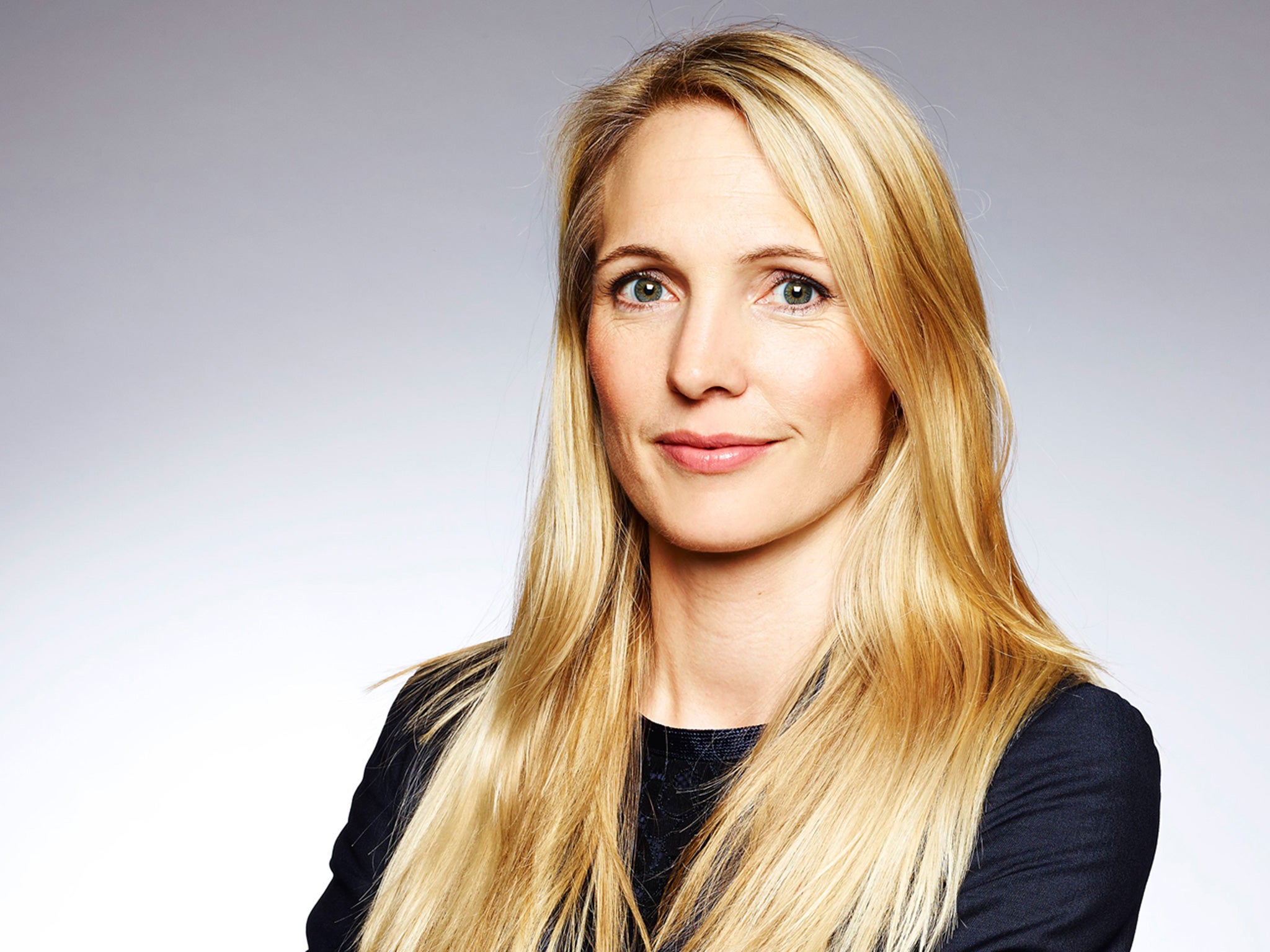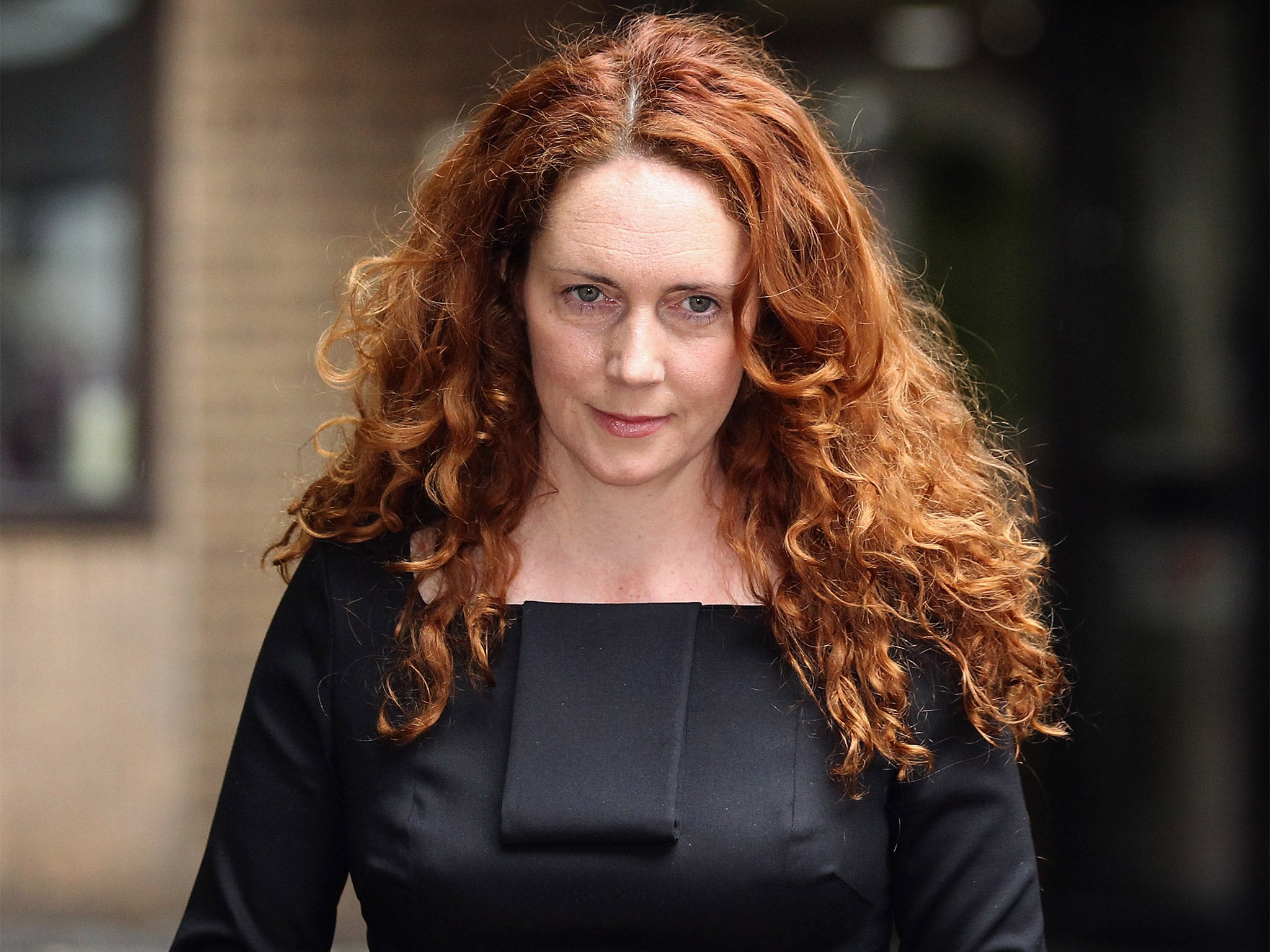The Media Column: How the chief executive of Hearst is reinventing ‘Cosmo’ for a new generation
Ms Jones is fluent in the language of brand extensions and digital innovation

Your support helps us to tell the story
From reproductive rights to climate change to Big Tech, The Independent is on the ground when the story is developing. Whether it's investigating the financials of Elon Musk's pro-Trump PAC or producing our latest documentary, 'The A Word', which shines a light on the American women fighting for reproductive rights, we know how important it is to parse out the facts from the messaging.
At such a critical moment in US history, we need reporters on the ground. Your donation allows us to keep sending journalists to speak to both sides of the story.
The Independent is trusted by Americans across the entire political spectrum. And unlike many other quality news outlets, we choose not to lock Americans out of our reporting and analysis with paywalls. We believe quality journalism should be available to everyone, paid for by those who can afford it.
Your support makes all the difference.If anyone can be said to “have it all” – the lifestyle aspiration which Cosmopolitan preaches to its readers – it is Anna Jones.
Appointed chief executive of Hearst Magazines UK, home to the influential women’s title and a portfolio of brands including Harper’s Bazaar and Good Housekeeping at the age of just 39, she is also a busy mother of two – and can even watch Borgen without the subtitles.
“I sometimes tell my husband ‘that isn’t what the characters actually said,’” says the bilingual Ms Jones, born in Yorkshire but whose mother is Danish.
Ms Jones is most fluent in the language of brand extensions and digital innovation, which are the core requirements in her mission to steer the Hearst titles, which include Esquire, Elle and Red, to a safe harbour where the younger readers’ desire for a mobile reading experience balances the unique opportunity for advertisers provided by glossy magazines selling a luxury lifestyle.
After taking the reins at Hearst in April last year, Ms Jones has made her first big change, appointing Farrah Storr, currently editor of Women’s Health magazine, as the new editor of Cosmopolitan, replacing Louise Court, who will become director of editorial strategy and content across Hearst’s UK magazines.
Recent circulation figures showed that Cosmopolitan had lost 10 per cent of its combined print and digital circulation. “It’s time to give the magazine a revamp,” Ms Jones said. “We’re not going to change the core pillars of the Cosmo brand – we have 88 international editions and we will hold on to the vision of Helen Gurley Brown [famed US editor and creator of the modern Cosmo brand]. We’ll refresh Cosmo under Farrah.”
Cosmopolitan is at the cutting edge of the challenge facing the magazines sector. Predictions of the “death of print” have proved wildly inaccurate. More than 190 new titles were launched worldwide in 2014, up from 185 in 2013.
Lifestyle titles aimed at women over 40, such as Country Living and Good Housekeeping, which reported a 3.1 per cent circulation rise last year, are thriving. Hearst has introduced a “quintessentially British” edition of the US 169 year-old leisure magazine Town & Country, targeted at city-dwellers who aspire to a little bolthole in the Cotswolds. “We’re addicted to screens but our consumer feedback shows that true luxury is leaning back with a book or magazine. People have less time but they still love magazines,” Ms Jones said.
Cosmo’s younger readership, however, can easily find the title’s mix of sex tips, fashion and celebrity interviews online – and if that’s how they want to access the Cosmo brand, that’s how Ms Jones will serve them. “We are totally agnostic about platforms,” said Ms Jones. “We can interact with our readers in a more direct way and in vast numbers through the free web and social media.”
The Cosmo website reaches more than three million unique users a month and a partnership with Snapchat allows users of the picture messaging app to read a daily digest of stories produced by Cosmopolitan.
Live events are an increasingly important means of “allowing consumers to experience the Cosmo life”. The magazine stages its own five-day “Fash Fest” in September, allowing readers who would never get near the front row of a couture collection runway the chance to attend fashion shows curated by high-street brands.
For 90 years the Good Housekeeping Institute has tested products and recipes designed for the home. Now it has a new home in Soho where experts kiss glasses with lipstick before placing them in a dishwasher to see if they emerge stain-free.
These brand extensions and a booming digital audience allows Hearst UK, originally the National Magazine Company, to lure advertisers with the claim that they can target one third of the women in the UK through its portfolio.
This August’s edition of Harper’s Bazaar raised eyebrows by incorporating a Samsung-branded smartphone on the cover, a first for “integrated marketing” in a UK title. “There is a debate about church and state (the divide between advertising and editorial). If the consumer experiences that advertising in a negative way we don’t do it. This is technology every reader has in their handbag, they want to know the best one, so it’s a good partnership with Samsung.”
A member of the Creative Industries Federation Board, Ms Jones, previously marketing and digital director at Hachette Filipacchi, which was absorbed by Hearst in 2011, is flexing a campaigning voice.
She is frustrated that the publishing world doesn’t do more to counter the view that print media is dying, and has placed Court, the departing Cosmo editor, in charge of her Empowering Women campaign, which aims to get more women on company boards.
“It’s a structural issue. British women don’t shove ourselves forwards,” says Ms Jones. Quotas could be the way forward. “I’ve had dinners with unnamed senior men who say, ‘Are we really still going on about that?’ We get easily bored with issues but there’s still a hell of a long way to go. I was against quotas but progress has been so slow, I think it helps us get to the next level. I don’t worry about merit because there are so many amazing women out there, running businesses.”
Ms Jones was inspired by attending a breakfast last week with Sheryl Sandberg, the Facebook chief operating officer. Hearst has agreed a deal with Facebook to share revenues from videos it posts on the social network and will also supply content for a new Apple news app. “We’re not scared of working with Apple and Facebook. They are enablers, we offer the kind of professionally-created content that they cannot,” Ms Jones said.
Hearst’s magazines have received 30 nominations for the Professional Publishers Association awards this Thursday, the magazine industry’s Oscars, with Esquire, Good Housekeeping and Cosmopolitan up for gongs. It’s an early test for Ms Jones’s vision of a revived Cosmo. “Go big or go home. Let’s live that – that’s what we’re going to do.”
Auntie’s glad to see the back of critic Davies
At last, some good news for the BBC after a week in which the corporation lost control over rights to the Olympic Games and pledged 1,000 job cuts to fill a £150m hole in licence-fee income as viewers switch to catch-up-only services.
The Conservative MP Philip Davies, one of the corporation’s fiercest critics, has left his bully pulpit at the Culture, Media and Sport select committee to take up a similar position on the Justice committee.
The new media panel, chaired by Tory Jesse Norman, which contains more men called Nigel (2) than women (0), promises a less hostile ride for BBC executives. The committee still has an important role to play, given that the BBC Trust appears to be on borrowed time.
There is clearly a case for executives to be grilled publicly for the BBC’s commitment to younger viewers following approval for the decision to close BBC3 as a broadcast channel and move its services online.
There are those who would shed few tears for BBC3 TV, which among some gems, produced some shamefully tacky programming. Commercial rivals are entitled to ask what public-service broadcasting benefits accrue from trashy series Don’t Tell The Bride, now transferred to BBC1 as an early-evening audience grabber.
‘Sun’ still shines for Brooks at News Corp

The time is approaching when News Corp must formalise the role which Rebekah Brooks is supposedly performing within the company’s UK newspapers.
Acquitted of phone hacking charges, Ms Brooks has been frequently sighted at News UK’s London Bridge offices.
It has been said that she played an active role days ago at a meeting with senior figures at The Sun, where budgetary matters were discussed. There is unpalatable news regarding The Sun’s print and digital revenues, it is speculated, and Ms Brooks, who remains close to Rupert Murdoch, is the boss’s trusted figure to deliver it and implement big changes.
Mike Darcey, chief executive of the UK papers, could even return to Sky, leaving a vacancy for a dramatic Rebekah return, some say.
Ms Brooks is having discussions with people across several of News Corp’s businesses in the US and UK, the company maintains. If “discussions” becomes a cover for important decisions affecting the company’s future its employees are entitled to know.
Join our commenting forum
Join thought-provoking conversations, follow other Independent readers and see their replies
Comments